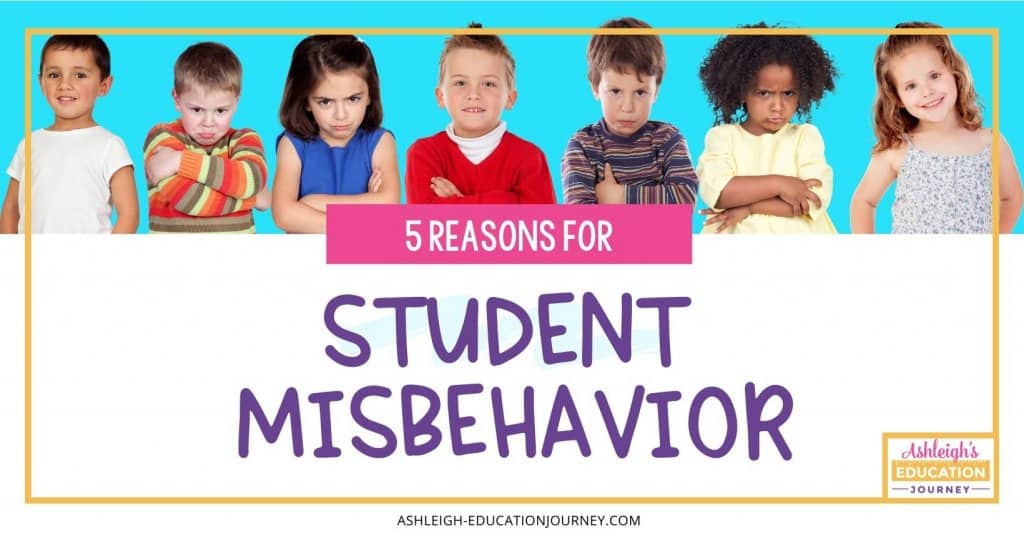
In this post, I share five common reasons for student misbehavior. No matter how strong our classroom management is or how positive our relationships with our students are, we are bound to encounter student misbehavior. As I’ve said before, I firmly believe the most important part of classroom management is our relationships with students. You can read a blog post on strategies to build relationships with your students here. I also believe that clear procedures and expectations are essential for preventing student misbehavior. You can read a blog post with strategies on introducing and practicing classroom procedures here. However, despite our best efforts, we will all still observe student misbehavior.
Over the years I’ve learned that there is no one-size-fits-all solution to misbehavior. Students misbehave for different reasons, and the way I handle that misbehavior depends on the student and the reasons for the misbehavior. In this post, I share some of the most common behaviors I’ve seen in my classroom and ways to help students showing that misbehavior.
Types of misbehavior explored in this post:
Student Misbehaves to get Attention
This is probably the most common cause of misbehavior. Acting out by making fun of others, talking out of turn, or being overly silly are just a few ways students looking for more attention may misbehave. Many students who value or crave attention don’t care if it is positive (praise) or negative attention (reprimands). They just want attention!
With these students it is very easy to fall into a ‘reprimand trap.’ First, the student misbehaves. Then the teacher approaches the student and reprimands him or her for misbehaving. Because the student finds the negative attention to be reinforcing, he or she continues to misbehave. A cycle is established, with the student repeatedly acting-out, and teacher reprimanding him or her.
Helpful Strategies:
- ignore attention seeking behaviors (unless it interferes with other students)
- give positive attention that is unconnected to misbehavior
- ask students to help you with classroom jobs
- make small talk with the student
- physical proximity or a hand on the shoulder
- make eye contact and smile
Student Misbehaves out of Frustration
Some students would much rather see themselves as behavior problems than struggling learners. They feel frustrated because they don’t get it, and rather than treat frustration as a doorway into learning, they push it away. This results in the student acting out. I can still see one of my former students flip his head in the way he did when he was frustrated and give me that glare. As always, he followed the glare by snarling, “I don’t care.” I could see right through that. Yes, that was poor behavior, but that was his way of saving face in front of his classmates. Rather than escalating things, I would back off. Later, when he was calm, we’d step in the hallway and chat.
Helpful Strategies:
- foster a growth mindset
- differentiate and adjust work accordingly
- manufacture situations where the student will experience success
- reach out with heart to heart talks
- don’t overemphasize grades, focus on learning
Student Misbehaves out of a Desire for Power
Some students who misbehave are expressing a desire for more control in the classroom. Acting inappropriately makes them feel powerful. Signs of a power-seeking student include constant arguing and a refusal to follow basic rules. There are two types of this behavior – active and passive. The active power seeking student will be the student who throws tantrums or gives you bad attitude. The passive power seeking student will be the student who quietly is in noncompliance with you. Power seeking students can be incredibly challenging. I’ve found that many of these students have experience some sort of trauma in their lives. These students are often desperate to control some aspect of their life and that need for control is reflected in the classroom. One of the best resources for these students is Trust Based Relational Interventions.
Helpful Strategies:
- avoid confrontation
- respect the student’s personal space
- give redirection then walk away
- provide choices in tasks
- give student a voice
- speak in a calm tone of voice
Student Misbehaves because they are Bored
It can be annoying to hear parents complain that their child is bored. There’s simply no way teachers can compete with multi-billion dollar video game technology or the freedom of playing outside. The reality is that we all have to do things we don’t want to do. We all have tasks to do that aren’t fun. Graded any papers lately? But….boredom is a cause of misbehavior.
It’s not realistic for every single lesson, every single day to be full of bells and whistles. But, I do try to make my lessons as fun and as engaging as possible. I work to build student stamina and teach students how to find the value of learning and solving problems. It’s also important to include lots of variety in our lessons, as well as stories and hands-on learning experiences.
Helpful Strategies:
- differentiate to be sure the student is being challenged
- incorporate problem based learning
- don’t reward students for rushing through their work with free time
- for students with short attention spans, use lots of short tasks rather than one or two longer ones.
Student Misbehaves because They are Looking for Revenge
Thankfully, I have not experience a great deal of this behavior, but it is a root cause for more serious misbehavior, so I felt like I needed to include revenge in this post.
Some children lash out in the classroom as a response to hurt feelings they experience. By misbehaving, they feel they are getting back at those responsible. Students who misbehave as a motive for revenge may enjoy acting cruelly towards others. Revenge seekers are likely to perform bullying acts, such as pushing, shoving, and excessive teasing. Passive demonstrations of revenge behavior can be withdrawal, uncommunicative, sullen and remote. Active revenge behavior is displayed through direct or indirect physical attack (destruction of property), or psychological attack. Revenge behaviors are difficult behaviors to manage, because it stimulates intense emotions.
Helpful Strategies:
- avoid consequences that are retaliative
- focus on making amends
- teach appropriate expression of feelings
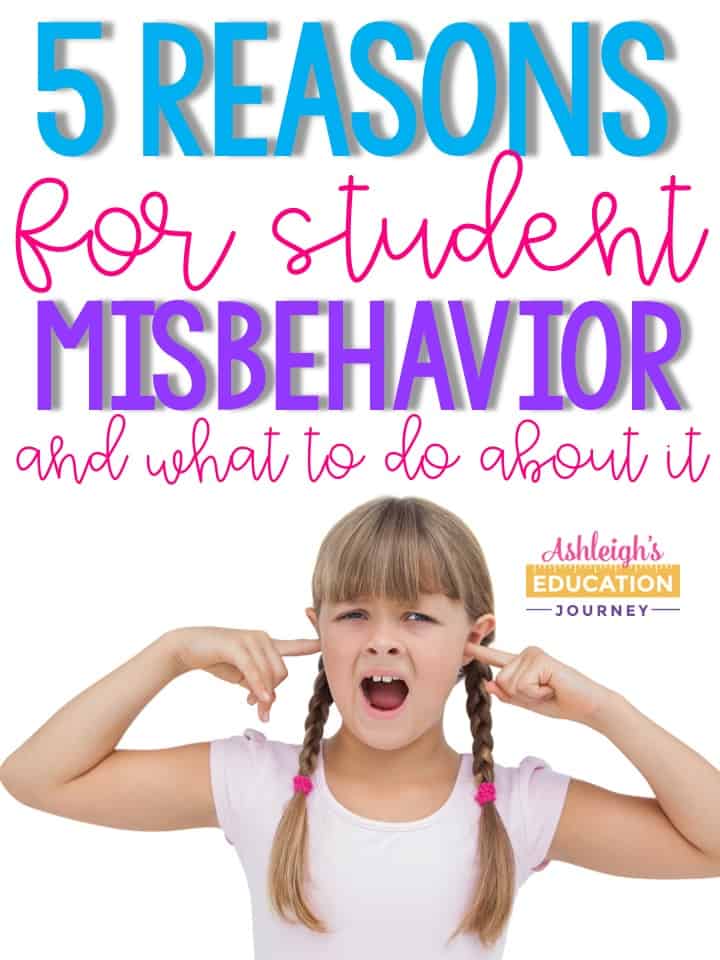
It’s important to remember that we’re teaching young children, even if we’re teaching upper elementary. I never, ever expect or want perfection from my students. I want to give them a little wiggle room and the freedom to be a kid. It’s also incredibly important to be aware of sudden changes in a student’s behavior. If you have a student that has a dramatic change in behavior that is often a signal of something going on in their lives that’s giving them trouble.
Knowing and understanding these five reasons for student misbehavior will allow you to become more efficient with your classroom management. This understanding allows you to continue developing that all important relationship with your students.

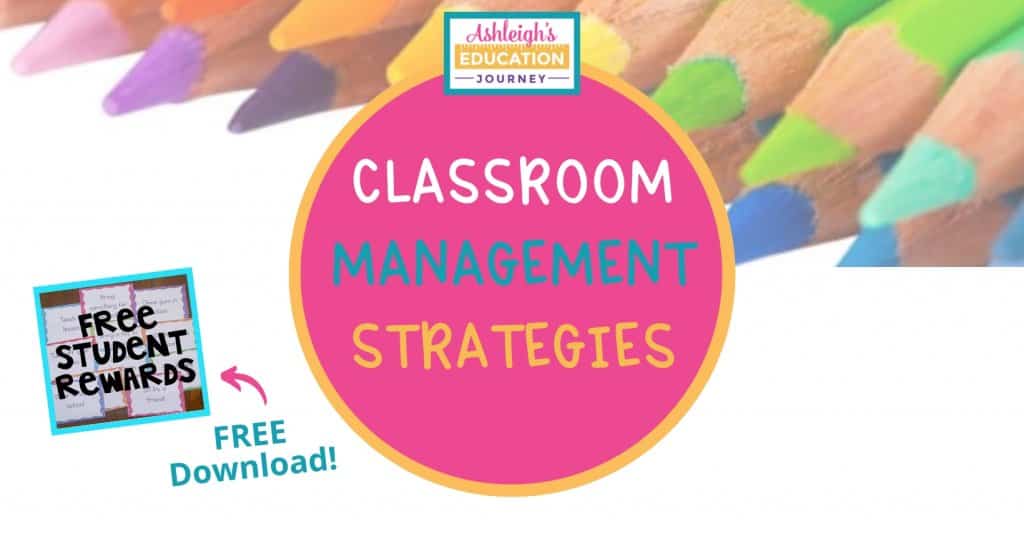
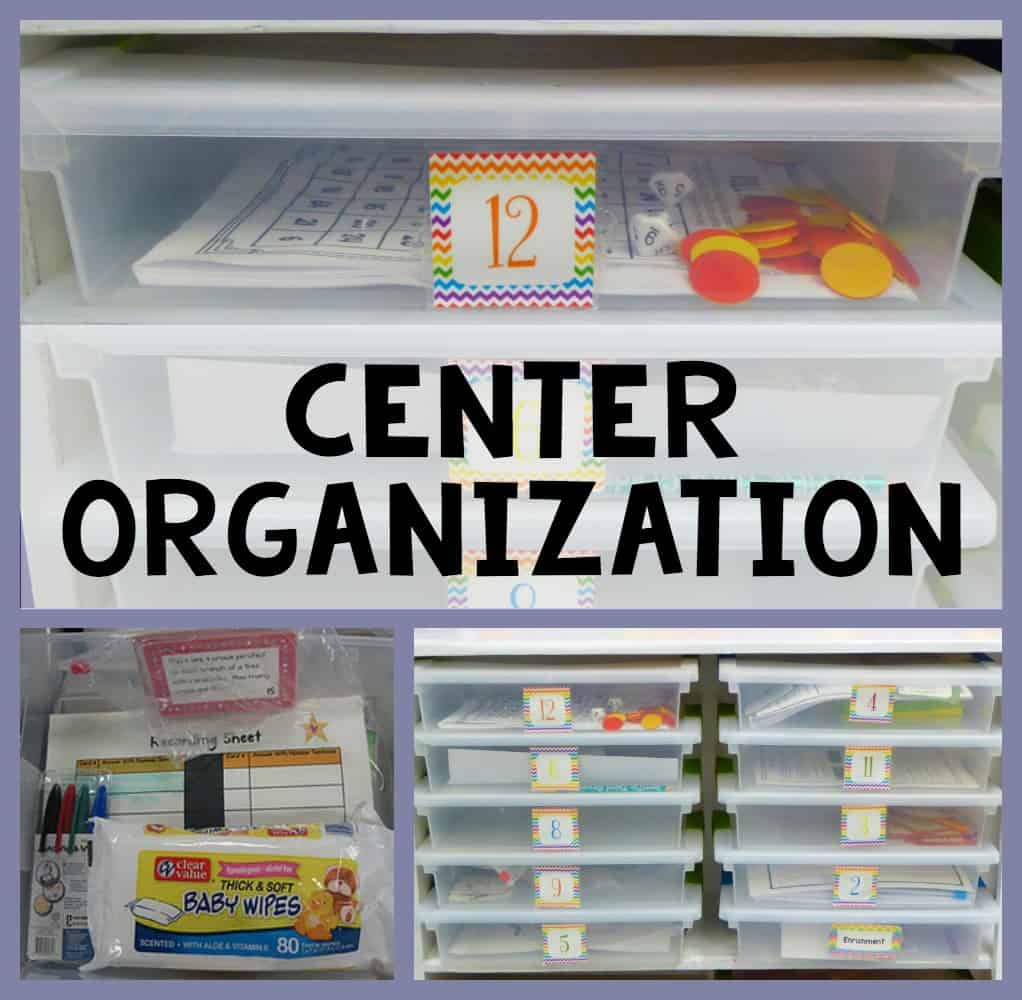
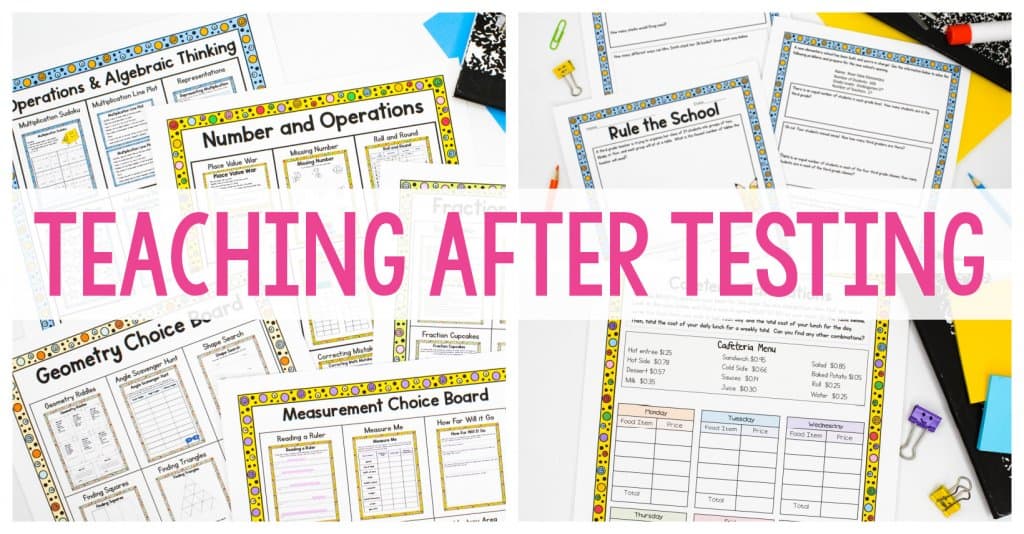
Hi Ashleigh
While I agree with much of what you say here, I feel you’re missing a major point. Many kids lack the skills and/or neurology to handle their frustrations in class. As educators, we are often in the unique position for educating not only children but their families. Children act out often because they have not learned skills like tolerance, or, they may have biophysical, psychological, or learned behavior issues, or, they may be struggling with other undiagnosed issues that fall in the autism scale, where sensory perception is a neurological issue out of their control. (Think how you might feel if you had to sit still and focus on a lesson while being in the middle of a nightclub with the moving bodies, loud noises, heat, light flashes and every other uncomfortably over-stimulating distraction.) I have been reviewing the school-to-prison pipeline and what we as educators can do to change the outcomes for so many children who need to be advocated for rather than punished. Thank you for sharing so many thoughtful ideas! I appreciate that you are the type of teacher who wants to help more than take punitive measures.